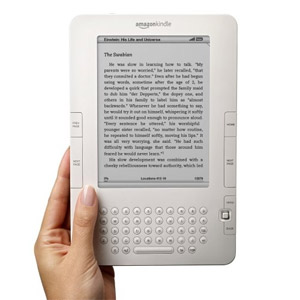by LinDee Rochelle
Every industry has its nitpickers. They’re the critics who peer at the infrastructure of new products from every possible angle—and rip them to shreds—all in the name of providing a service to the GP.
Publishing is no different. From the printing press to ebooks, every ground-breaking product “hot off the press” is poked and prodded, analyzed and evaluated until the consumer is so confused they often buy it, just because it’s new and controversial.
Dissecting anything, however, requires a detached and aloof approach, which often results in missing the whole point o
f the innovation. Such is the case with ebooks.
Now that the dust has settled on the first round of formats and distribution outlets, and we have a nice array of digital readers, the critics have turned their attention to the great pricing debate.
There’s no doubt about it—ebook pricing is all over the place. Most consumers—and some authors—want ebooks priced MUCH lower than print books. “Non-existent production costs” is often cited as the primary reason.
Brett Arends wrote for the WSJ, “There is no paper, no printing, no trucking and no retail space. So they should cost a lot less to buy, but the deal often isn't anywhere near as good as it should be.” (“Are E-Books Worth the Money?”)
Two thoughts bother me about the e-book pricing circus:
- Authors don’t seem to be voicing an opinion, or in the case of independent authors, many are siding with consumers and setting low prices, which creates a low standard for all.
- More importantly, NO ONE seems to be considering the books’ CONTENTS.

I’ve seen publishing experts, who command thousands of dollars in fees for a conference presentation, charge $2.99 for their ebooks, and $15.99 for the same content in a print book. Granted, the production costs are close to nil for the hard copy, but those costs don’t represent $13.00. Why is the ebook content unevenly devalued?
Even if an author publishes in the ebook format only, and eschews print publishing, is the value of their novel, business book, or textbook, any less?
An author spends just as many eye-glazing, mind-numbing hours researching, creating, writing, editing, and marketing an e-book as they do a print book. Why should they give it away? Ebooks were created as a convenience for busy consumers; not as a bargain-basement by-product of a perfectly good book.
I can often empathize with both sides of a debate, but in this instance, I side with the publishers. Not because I think they should make a bundle off of ebooks, but because authors need an ally to help them remember that they put a LOT of work into that book and should be compensated for it, just like any other craftsman.
Four Tips to pricing your ebook:
- First and foremost, just as with your print book, consider the content; and perform due diligence to research other books’ print-to-digital ratio in your genre
- A stand-alone e-book, again, deserves content consideration; don’t sell it for pennies on the dollar just because it’s digital
- Consider the royalty amount—averages run 50% to 75%
- A give-or-take average price is about 30% lower than the equivalent hard copy book, to adjust for print costs
Remember, you’ve put a lot of sweat-equity into your e-book. Ask a fair price for it.
__
Photo courtesy of Amazon.com


